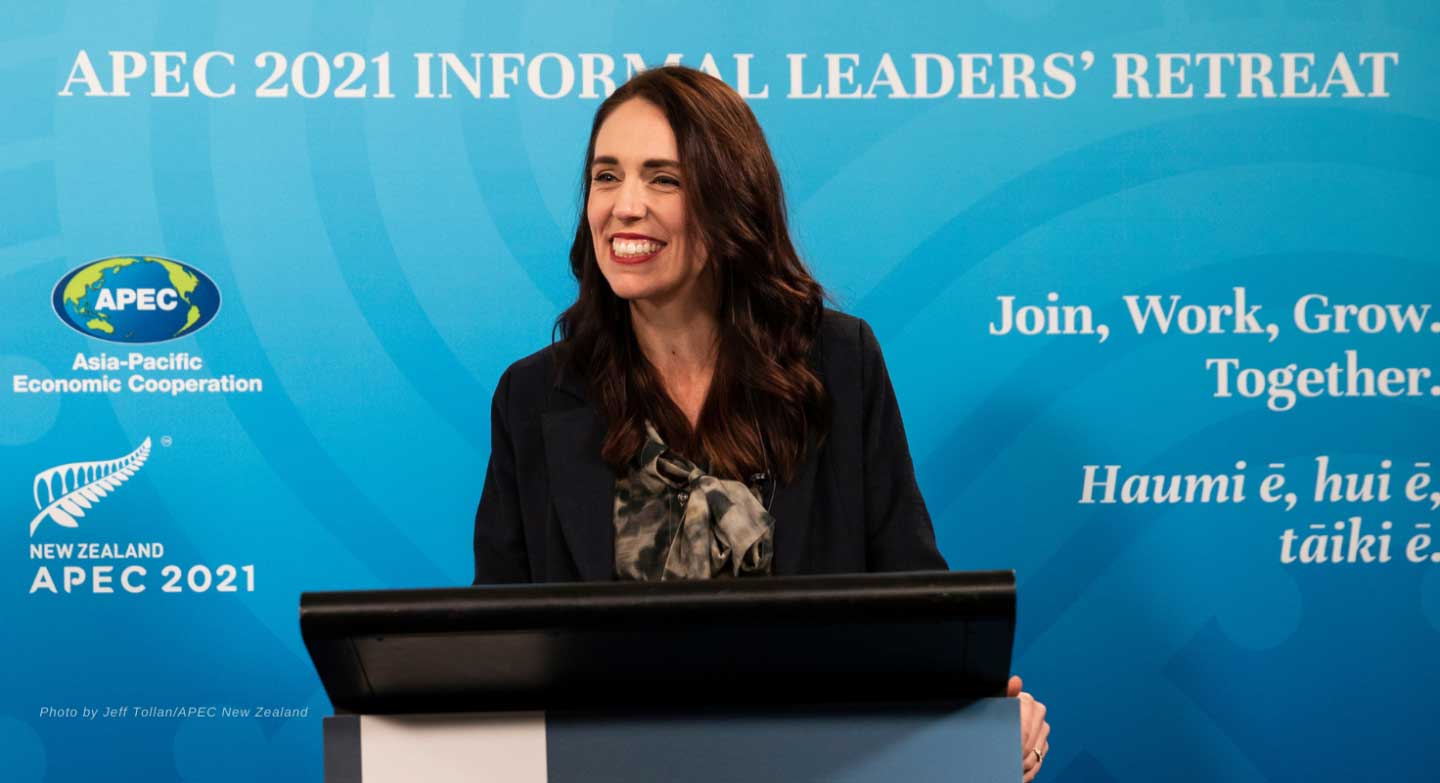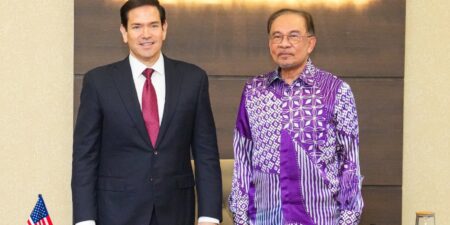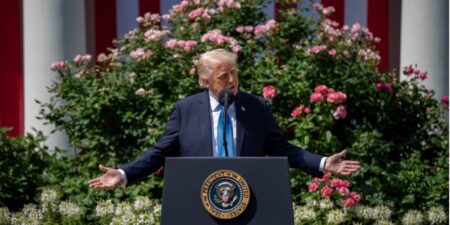Ambassador C. Lawrence Greenwood wrote an update to clients on the accomplishments of the latest round of the Asia-Pacific Economic Cooperation forum (APEC) meetings. The update addressed the context, outcomes and wider consequences of the interactions that took place.
Context
The leaders of the 21 Asia Pacific Economic Cooperation (APEC) economies met virtually on November 12 under New Zealand’s chairmanship for the APEC Summit.
While the focus was on the summit itself, it in fact capped off weeks of negotiations among senior officials, a ministerial meeting on November 9 and the annual APEC CEO Summit on November 10-11.
Significance
APEC economies agreed to support the global response to COVID-19 and ensure a healthy, sustainable economic recovery from the pandemic.
They also made commitments in specific functional areas. These included redoubling efforts to reduce carbon emissions, pushing for broader application of digital technologies to drive growth and promoting trade facilitation.
Implications
APEC continued to flesh out its longer-term agenda out to 2040. The leaders approved the Aotearoa Action Plan, which adds more substance to the Putrajaya Vision 2040 launched last year, with a focus on trade and investment liberalization, digital transformation and green and inclusive growth. Members committed to detailed reviews of their progress toward implementation by 2040.
The chairmanship will shift to Thailand next for 2022. Thailand has indicated it will stress continued trade opening and cooperation on COVID along with an emphasis on collaboration among APEC economies on resuming travel in Asia in the wake of the pandemic.
BowerGroupAsia is ready to assist clients to explore how they can use APEC to support the execution of their corporate strategies in Asian markets. If you have any questions, please contact BGA Senior Advisor Ambassador C. Lawrence Greenwood at lgreenwood@bowergroupasia.com.

Senior Advisor
Larry advises clients on government relations and international economic policy, with expertise in trade, finance, development and Asia. In addition to supporting clients in the San Francisco Bay Area, Larry draws on his experience over the past four decades to help clients address business issues in Japan. Until July 2015, Larry was senior managing director for government relations in Asia for MetLife. He was responsible for working with governments, legislatures and industry associations to shape financial policies and regulations in Asia. His achievements at MetLife included building a new government relations team in Asia, helping the company open new businesses ...
Read More


























